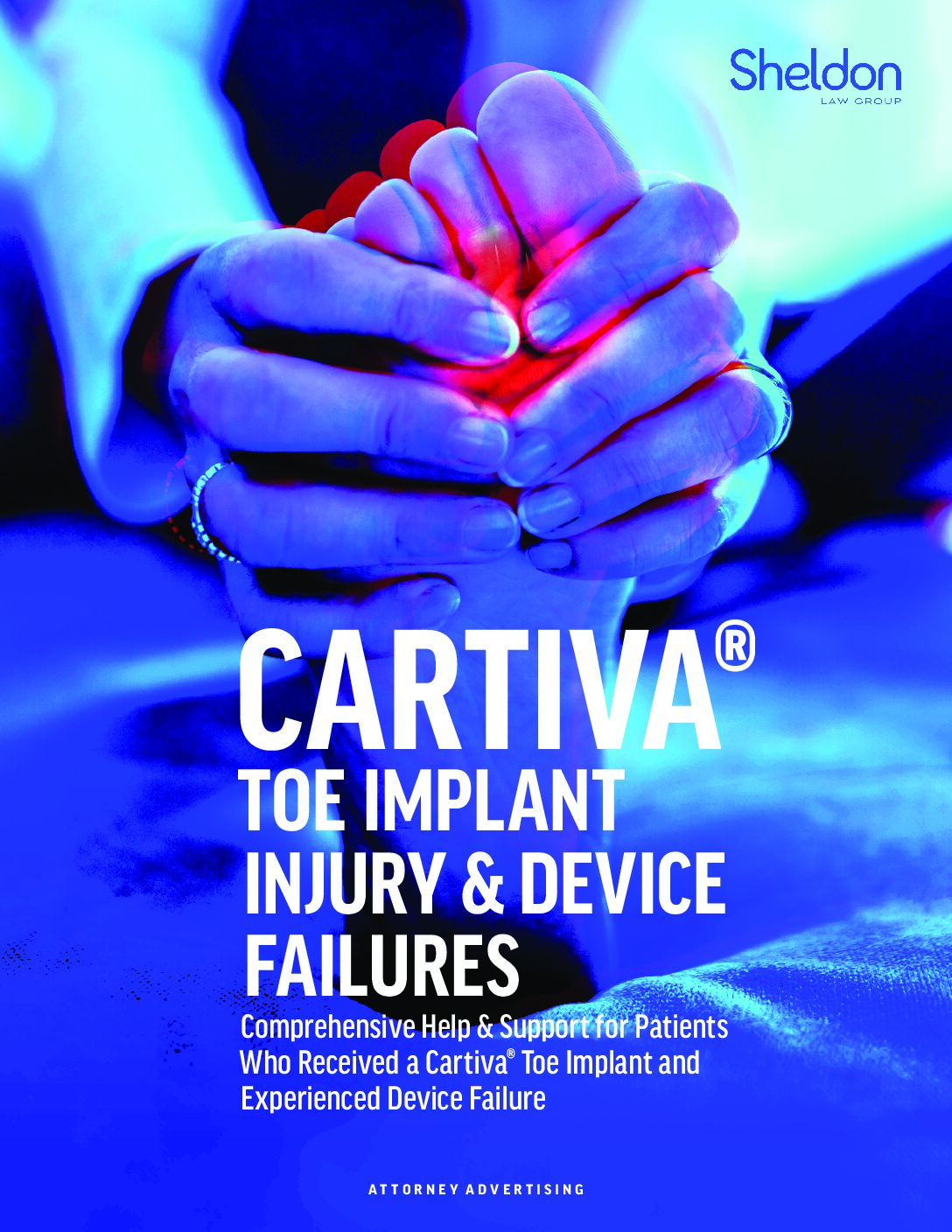Science and Research on Cartiva Premature Failures and Big Toe Injuries
Some studies have reported complications and failures of the Cartiva big toe implant, such as infection, implant loosening, bone erosion, and persistent pain. Patients who have received the implant or who are considering the implant should discuss the pros and cons of the device with their healthcare provider.
Get A 100% Free CASE EvaluationWhat is Cartiva Synthetic Cartilage for Big Toe Arthritis
Cartiva is a synthetic cartilage implant that is used to treat arthritis of the big toe joint. It is designed to reduce pain and improve function by replacing the damaged cartilage in the joint. However, some studies have reported complications and failures of the implant, such as infection, implant loosening, bone erosion, and persistent pain.
Recent Studies and Reseach on Cartiva Toe Implants
Higher rates of complications
A study by Baumhauer et al. (2018) compared the outcomes of Cartiva implant with fusion surgery, which is the traditional treatment for big toe arthritis. They found that Cartiva implant had similar pain relief and function improvement as fusion surgery, but with a higher rate of complications (29.4% vs. 9.6%) and reoperations (13.2% vs. 1.9%). The most common complications were implant loosening, bone erosion, and infection. (https://www.odtmag.com/contents/view_breaking-news/2018-07-18/cartiva-presents-clinical-data-on-treating-big-toe-arthritis-with-synthetic-cartilage-implant/)
Higher Than Expected Failure Rates
A study by Luot et al. (2019) evaluated the long-term results of Cartiva implant in 23 patients who had the implant for more than five years. They found that Cartiva implant had a high failure rate of 43.5%, with 10 patients requiring revision surgery. The main reasons for failure were implant loosening, bone erosion, and persistent pain. The authors concluded that Cartiva implant was not a reliable option for treating big toe arthritis in the long term. (https://luot.ch/wordpress/wp-content/uploads/2019/01/Baumhauer-Cartiva-FootAnkle-2016.pdf)
Insufficient Efficacy Data for Insurance
A medical policy by Healthy Blue NC (2020) reviewed the evidence on Cartiva implant and determined that it was not medically necessary for treating big toe arthritis. The policy stated that Cartiva implant had insufficient evidence of effectiveness and safety and was associated with a high risk of complications and reoperations. The policy also noted that fusion surgery was a more established and durable treatment for big toe arthritis. (https://provider.healthybluenc.com/dam/medpolicies/healthybluenc/active/policies/mp_pw_c195275.html)
If You Had to Have Revision Surgery After Receiving a Cartiva Toe Implant, We Can Help.
If you have suffered from complications after receiving a Cartiva Toe Implant, contact us now. We are fighting to protect the rights of patients allegedly injured by Cartiva toe implants and hold the device makers fully accountable for putting profits above the health and well-being of patients.
Patients who received a Cartiva toe implant and were forced to have revision surgery to remove or replace the device, may be entitled to significant financial compensation. Contact us now to learn more about your rights and whether you are entitled to compensation.

